What size solar power systems were Australians wanting in November? What proportion were considering a home battery? Find out in the latest auSSII report.
Solar Power System Size Choice
Around 80% of Australians using SQ’s solar quotes service who selected a size range chose 5- 10kW in November. Approximately 9% chose the “fill your roof” option, down on Octobers 12% and back in line with September’s result.
If you’re uncertain about system sizing, pick up some advice from SolarQuotes founder Finn on how much solar power you’ll need. But don’t get too hung up on trying to figure it out as a good installer will advise on what would best suit your situation.
Solar Power Purchase Timeframe
As in September and October, November saw around 25% of enquiries indicating an immediate purchase – still a high level of interest in getting panels on and electricity bills down as soon as possible. And as has been the case in the last couple of months, a third were thinking of buying a system within the next 4 weeks.
Note: the national subsidy that provides an up-front discount on buying a system will be reducing on January 1, as it has done each year since 2017. The good news is solar will remain a solid investment. Find out what’s ahead for the solar rebate in 2022.
System Price Vs. Quality
12% of quote requests selected the “top quality” (most expensive) system option in November, same as October. Around 81% wanted a system offering a good balance of cost and quality, and a little under 8% a good budget system.
Fun fact: Given current circumstances, premium solar panels with 25-year product warranties aren’t much more expensive than budget modules at the moment.
Related: Solar power price guide (from budget to top-end systems).
Australian Solar Price Index
The auSSII report covers what Australians are wanting – but how much are they actually paying for systems? Find out using the SolarQuotes Australian Solar Price Index; updated in real time We’ll have a summary report on November average system costs here on the blog towards the end of this month and you can read our report covering October here.
Microinverter/Optimisers
In November, just north of 20% of requests expressed interest in learning more about microinverter and optimiser options. Both are PLO (Panel Level Optimisation) devices, which can be particularly beneficial in some installation situations.
Consumption Monitoring
For something to be effectively managed, it needs to be measured – and that includes solar power system performance. While all solar inverters these days incorporate energy production monitoring, they won’t track solar energy consumption. That’s where optional advanced solar monitoring is well worth considering as it can help you extract the most value from your system.
In November, around 39% of Australians using our service were interested in consumption monitoring, up on October’s 37% but still down on previous months (September: 40%, August: 43%, July: 42%)
Battery Ready Solar Systems
Not much changed here again in November, with just 6% expressing interest in a “battery-ready” solar power system. That doesn’t mean there isn’t significant interest in batteries and the fact is energy storage can be retrofitted to any solar system. The related question on the quoting form is just to give prospective installers a heads-up on future intentions, which can help with system design.
Solar And Concurrent Home Battery Install
There was plenty of interest in having a home battery installed at the same times as solar panels – 20% (October 20%, 12% in September and August).
A home battery is a big investment. Discover everything you need to know about solar batteries – particularly worth reading are Finn’s new “101” guides on understanding, buying and owning a home battery system.
Also well worth a read are a couple of recent articles from Ronald – an in-depth sonnenBatterie Evo review (the sonnen Evo was unveiled just last week) and his coverage of an important battery testing report.
Main Battery Use
Close to 6% of those considering a concurrent solar battery installation want it primarily for backup purposes (5% in October, 8% in September, 5% in August), 35% for minimising mains grid electricity consumption (~40% in October and close to 41% in September and August) and 59% for both purposes (59% in October, 51% in September, 55% in August).
Pre-Solar Electricity Bills
47% of Australians who knew what they were paying on their electricity bills indicated spending between $500 and $1,000 on average per quarter – back within the usual range of 45% – 47% after rising to 49% in October. Just under 12% were paying more than $1,000 a quarter.
Trivia: While wholesale electricity prices have been decreasing (thanks in part to rooftop solar), this element only makes up a quarter to a third of an electricity bill.
About The December auSSII
This month’s auSSII report is based on information provided by the thousands of Australians who utilised the SolarQuotes quoting service in November.
Quality Leads For Quality Installers
More than 580,000 Australians have received quotes through SolarQuotes since 2009. If great customer service and quality installation is your focus, your business could tap into SQ’s superior solar sales leads to find eager buyers.
auSSII Report Reproduction
You can reuse information from this report in your publication without submitting a formal request – we just require the content is attributed to SolarQuotes and this page is referenced.

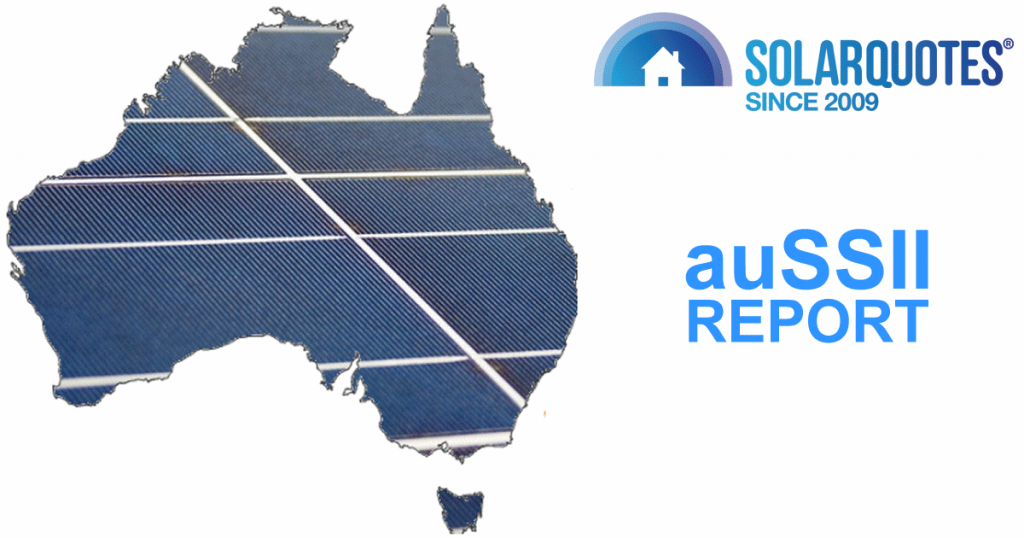
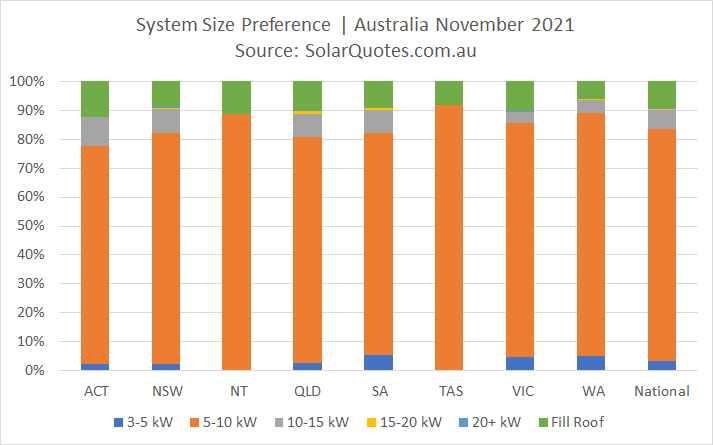
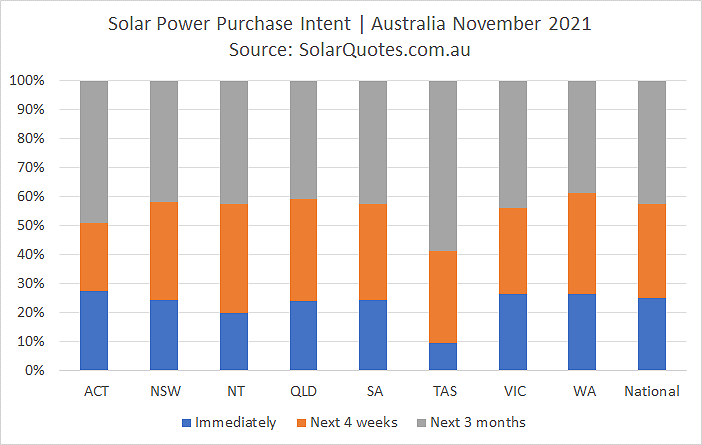
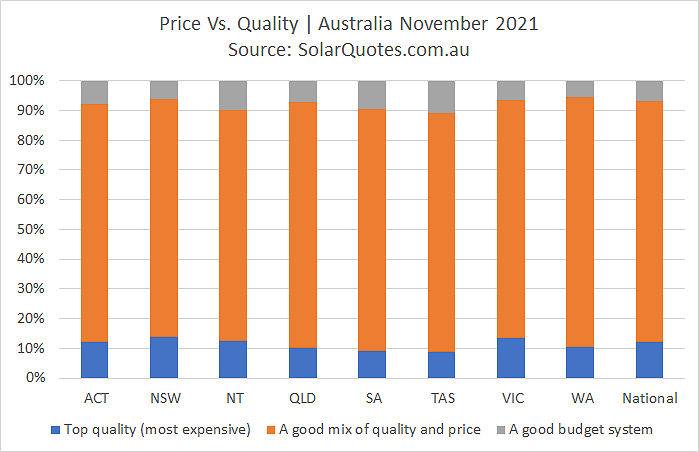
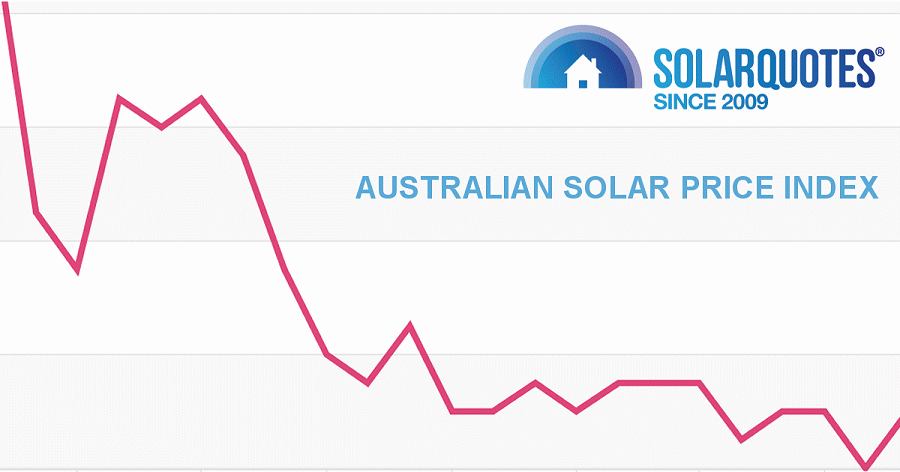
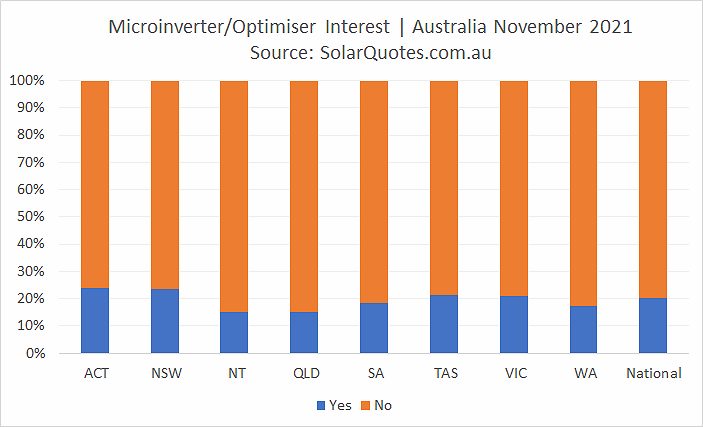
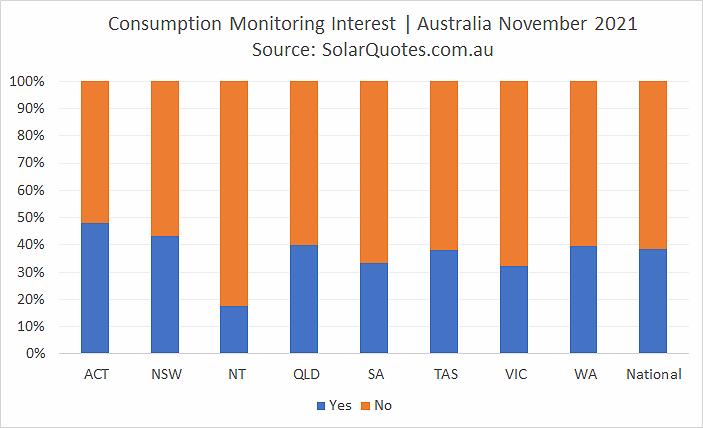
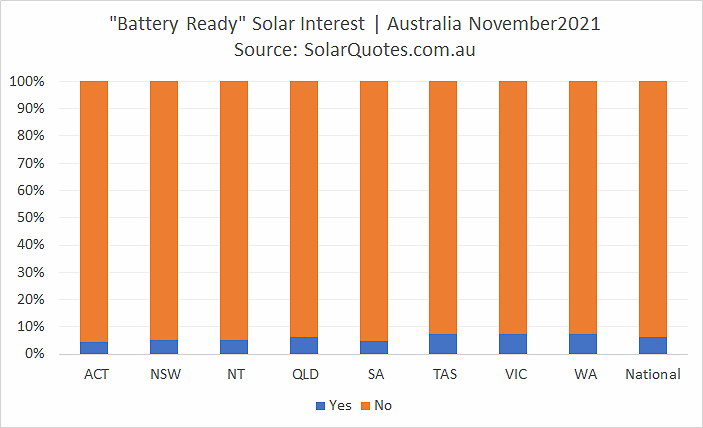
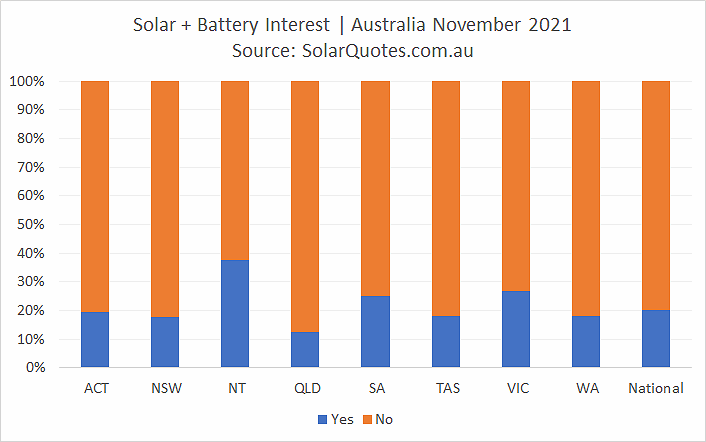
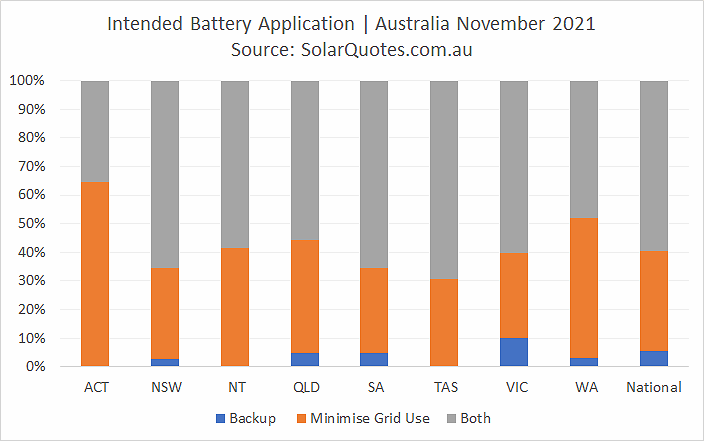
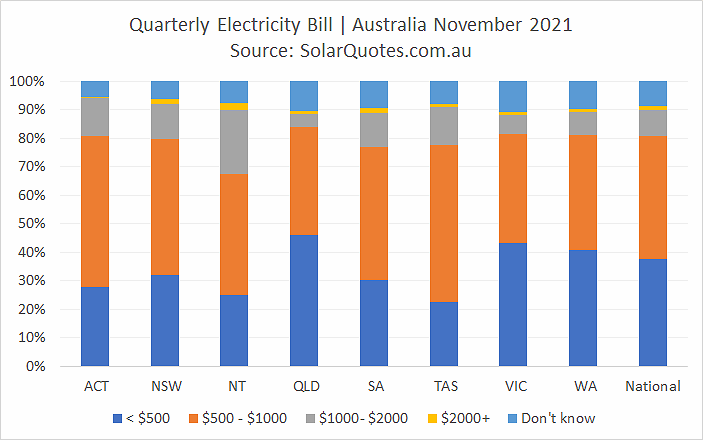
 RSS - Posts
RSS - Posts



Speak Your Mind